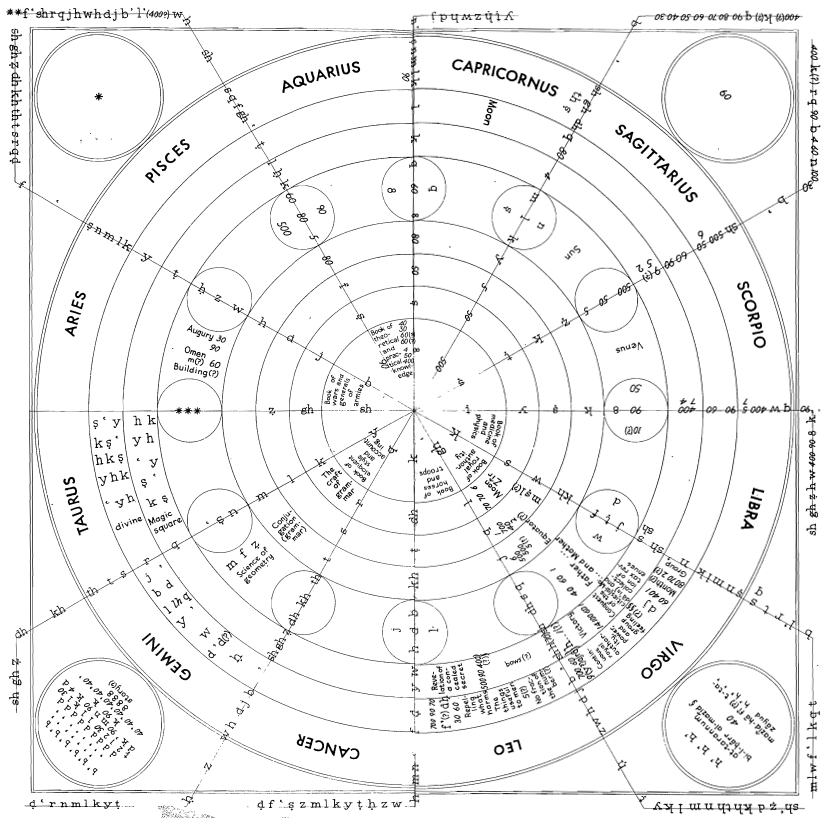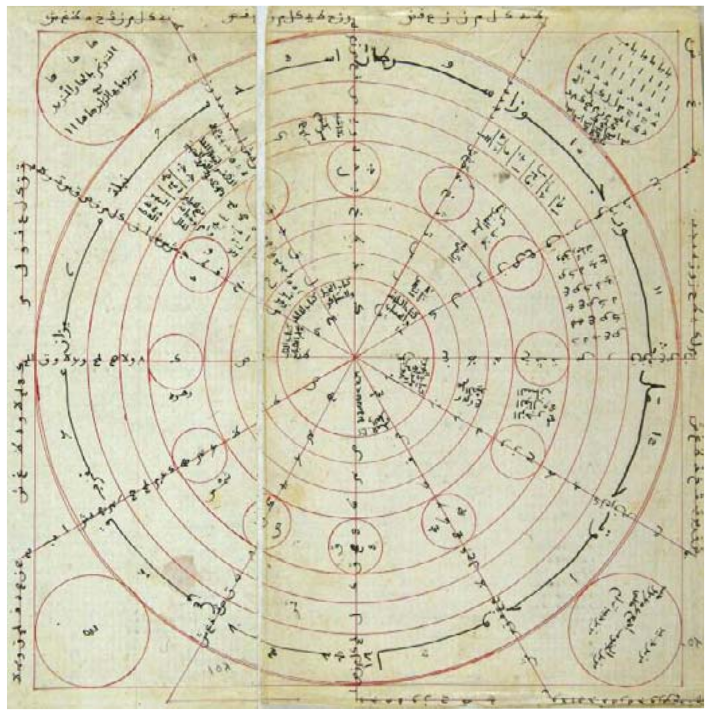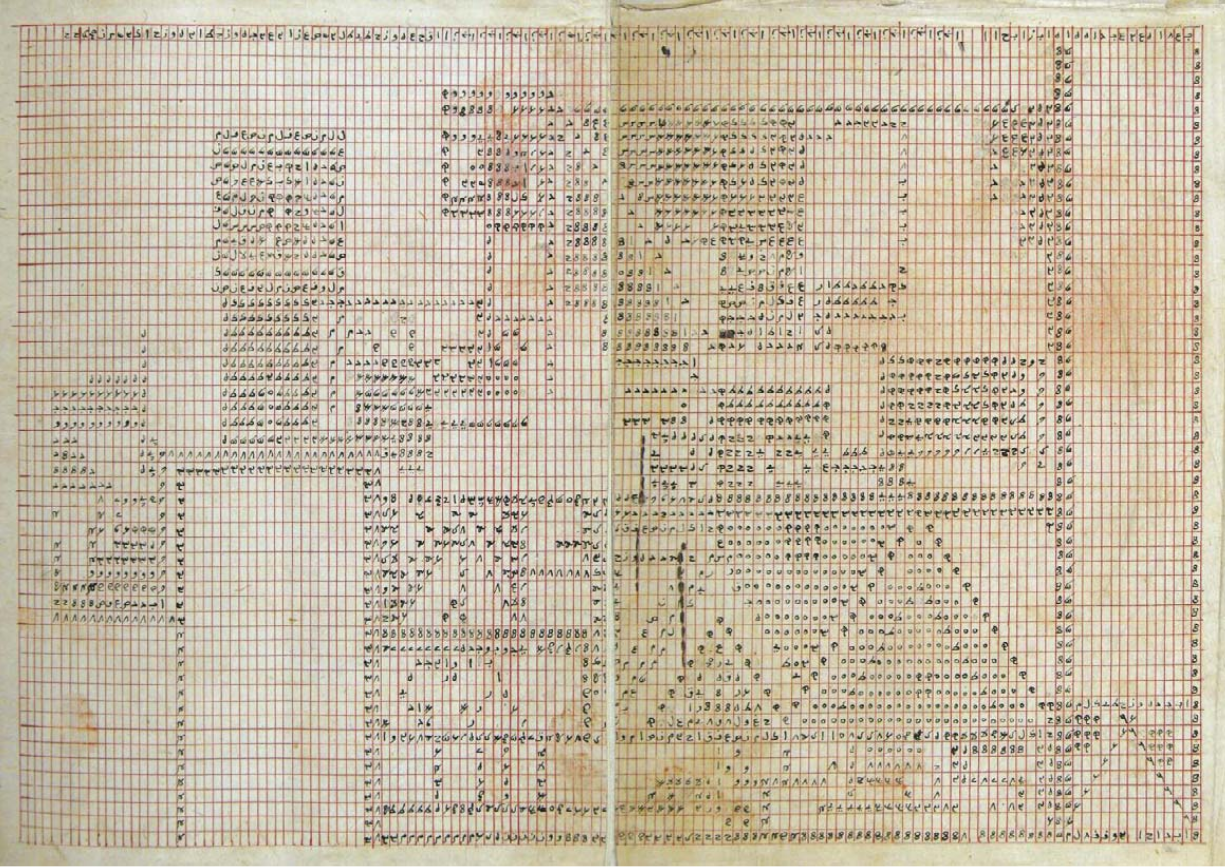theme: all_combinations
zā’irja
1190

Transliteration of the zā’irja front by Rosenthal.
(Khaldūn, 1967)
Zā’irja front from another [~1394] Turkish manuscript of the Muqaddima (MS Damad Ibrahim863, Süleymaniye library, Istanbul, p. 352)caption string
(Link, 2010)
Reverse of the zā’irja in MS Damad Ibrahim 863 (Süleymaniye library, Istanbul, p. 353f.).
(Link, 2010)More than 600 years ago, the zā’irja already provided a functionality which the constructors of search engines, and many others, are longing for today.
(Link, 2016, p.169)The aims of artificial intelligence and ‘ilm al-ḥurūf (the science of letters) coincide: to provide a truthful answer to any question posed. But the knowledge of every fact in future history represents a tragic and highly paradoxical situation. It excludes human freedom, because it is based on the assumption that the fate of everything has already been written down. Even though the actor knows beforehand what will happen to him for the rest of his life, he is unable to change it, not even the slightest gesture, and more cruel than in “Groundhog Day”: a man suddenly exists in a different system of time, in which the same day is replayed throughout eternity.
(Link, 2016, p.169)Khaldūn, I. (1967) The Muqaddimah : an introduction to history. Translated by F. Rosenthal. Princeton, N.J: Princeton University Press. Available at: [link]
Link, D. (2010) ‘Scrambling TRUTH: rotating letters as a material form of thought’, Variantology, 4, pp. 215–266. Available at: [link]
Link, D. (2016) Archaeology of Algorithmic Artefacts. Mineapolis: Univocal.
theme: all_combinations